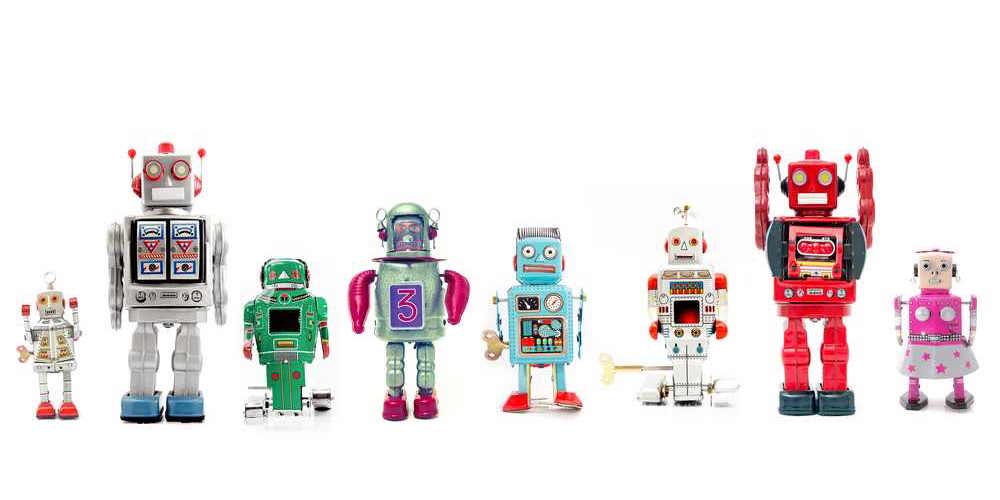Be prepared for the digital revolution in reward ... or lose your job
The Bank of England’s Chief Economist, Andy Haldane predicted that 15 million UK jobs will be lost to robots; while a report from the University of Oxford and Deloitte predicted 10 million jobs will be lost. Given we have about 30 million people employed in the UK, about a third to half of all jobs will go.

We are creating HR and reward strategies today for workforces that will be doing very different jobs in the future.
And if you’re a benefits manager, then there is a predictably a high chance your job will not exist in 20 years’ time.
We’re not all doomed
Step one: do not bury your head in the details of your latest employee benefits project thinking you are too busy to consider anything else right now. You’ll lift your head one day and realise that, like Blockbuster in a Netflix world, you’re no longer needed.
Step two: watch for the clues telling you where the working world is headed.
Technology and digital is changing the workforce
Where we work, when we work and who works for us are all driving major change that will affect HR and reward.
First, we are seeing the rise of the ‘gig’ workforce. That is, people who work for your organisation on a part time, freelance or ad hoc basis. They are not people you’d think of as permanent contracted employees; they might not even be paid via your payroll. But they are vital to keeping your business going. The obvious examples are the drivers who work for Uber or the cyclists who work for Deliveroo. Their ‘jobs’ have been created due to digital innovation.
While most of these jobs have been created at the lower-paid end of the workforce, gig workers exist at all levels. Just think of your non-exec board members (probably less digital, but equally ‘gigging’ with more than one organisation).
It is predicted that all these gig workers will, on average, make up a third of future workforces. If you want the best talent to come and work for you, shouldn’t your reward strategy encompass them too? And what does a reward strategy for a gig workforce actually look like?
Real-time, crowd-sourced employee performance
Second, digitisation has led to the rise of the flexible workforce. Perhaps these flexible workers are your permanent employees, but they work whenever or wherever they need to.
Research in the market shows that flexible working enhances engagement, productivity and wellness. Employees want it, yet many managers fear it. Revised HR and benefits strategies that are pro flexible working, backed up with technology, should be the way to go.
Huge leaps are being made in the world of performance management, where the days of the line manager keeping an eye on workers and awarding an annual appraisal mark are numbered. Soon it is going to be all about peer-recognition, real-time performance assessment and crowd-sourced appraisal reviews. Some organisations are using these methods already, and advances in employee performance technology is both fascinating and mind blowing.
Technology means transparency
Imagine a world where every reward decision was open to scrutiny? Where you could see exactly how much (and why) you are paying your pension investment consultants? Where you can get an accurate overview of your workforce’s predicted health and wellness on which to base strategies and insurance premium prices?
According to some future gazers, the future is total transparency. Benefits managers will no longer have to stare at the crystal ball (currently known as the Excel spreadsheet) and make assumptions. It will all be done based on millions of minutiae of data. One theory is that this will sit in blockchain technology (the technology that underlies Bitcoin), but it could also be via the likes of Facebook, Apple or Google.
Coming back to benefits, it is clear that as we get used to managing all the data that a digital world can throw up, so there are huge uses for reward professionals.
The relevance revolution
As we become cleverer at ensuring this data is secure, and as younger staff – who appear far happier to share information – tell us more about themselves, so we will be able to move toward the relevance revolution. We will be able to offer benefits that truly meet the needs of individual staff. The days of offering everything to everyone in the vague hope that something will appeal will disappear. Benefits managers will no longer say: “They don’t appreciate their benefits!”
Already there are startups in the HR digital world that are offering cloud-based portals which ask for and capture more data on staff than has traditionally been considered appropriate. It will be these new cheeky chappies who create the HR and reward norms of the future. They will have the full insight on how to drive performance in a workforce, retain talent, recruit the best and engage staff.
Not the old hands who are terrified of data protection, and who think of digital and data as a mysterious black box.
This means that some of those ten to fifteen million jobs that will go to computers will be those people currently shuffling Excel spreadsheets in pensions, insurance and HR departments.
You have been warned!
And just to revert back briefly to point 2 – attend REBA’s Innovation Day on 22 November 2016 for a wealth of information about where the world of reward technology is heading and what incredible advantages it can offer your benefits strategy.






